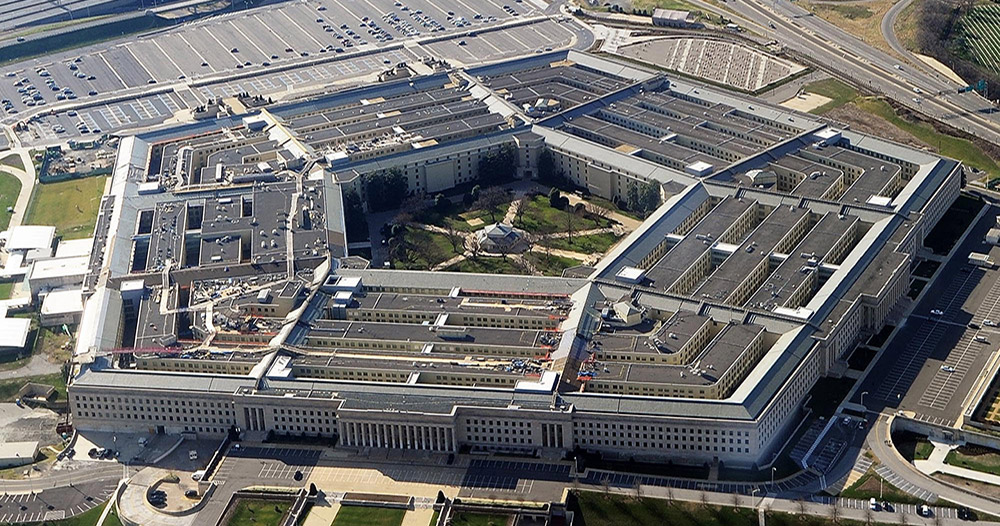The number of reported sexual assaults at the U.S. Military Academy has nearly doubled in the last school year, according to an assessment released last week by the Pentagon’s Sexual Assault Prevention and Response Office.
During the 2015-2016 school year, there were 26 reports of sexual assault. During the 2016-2017 school year, that number rose to 50. It is the fourth year in a row reported sexual assaults at the West Point, N.Y., school have increased, reports The Denver Post.
The Defense Department and West Point officials say the large jump is due to rigorous efforts to encourage sexual assault victims to come forward.
“I’m very encouraged by the reporting,” Lt. Gen. Robert Caslen, superintendent at West Point, said in an interview with the AP. “I recognize that people are not going to understand” the desire for increased reporting, he said. “I’ve got the steel stomach to take the criticism.”
Comparatively, the U.S. Naval Academy in Annapolis, Md., and the U.S. Air Force Academy in Colorado Springs, Colo., have seen only slight increases. The Naval Academy’s reports increased from 28 to 29. The Air Force Academy’s increased from 32 to 33.
An anonymous survey distributed to all three academies and released last year showed there were more sexual assaults, unwanted sexual contact and other bad behavior at all academies. Approximately 12 percent of female responders and 2 percent of male responders said they experienced unwanted sexual contact while attending one of the schools.
“When we saw that, we did a complete review of our strategy,” said Caslen. “We went after increased reporting.”
The sexual assault reporting center at West Point was moved to a more accessible area on campus with a private entrance. It was previously housed in the same building where students facing disciplinary actions would go.
“I’ve been telling them to do that for years,” said Nate Galbreath, deputy director of the Pentagon’s sexual assault prevention office. “Walking into the building where lots of people who are getting in trouble go, that is a real disincentive for people to come forward and make a report.”
The school also loosened regulations that forced cadets to publicly report sexual assaults. Students are no longer required to file a formal report and can seek help anonymously.
The Army’s public affairs chief Brig. Gen. Omar Jones says this year’s increase is a direct result of “proactive and deliberate initiatives” to help victims report incidents.
Air Force Academy Mishandled Reported Sexual Assaults
While the reported numbers are lower at the Air Force Academy and the Naval Academy, the report also highlighted persistent problems within the sexual assault prevention office at the Air Force Academy.
The Pentagon’s assessment determined the academy mismanaged its sexual assault prevention and response program during the 2016-17 academic year and failed to comply with the military’s victim assistance and advocacy policy, according to CNN.
“Sexual assault prevention and response program mismanagement at the U.S. Air Force Academy put it out of compliance with Department and Air Force victim assistance and advocacy policy,” the report said. “Given this discrepancy, the Air Force Academy is in partial compliance overall.”
The assessment found that the U.S. Military Academy and the U.S. Naval Academy were in compliance with Pentagon policies that “govern sexual assault and sexual harassment prevention, victim assistance and advocacy, investigation, accountability, and assessment.”
Late last year, issues among staff and management at the Air Force Academy led to disciplinary actions and the restructuring of the office. School officials also recommended director Teresa Beasley be fired. She subsequently resigned.
The issues within the Air Force Academy’s sexual assault office also coincided with a sharp decline in reported sexual assaults during the 2015-16 school year, suggesting students may have been reluctant to file reports.
“Are there people that are out there that weren’t able to make the report that they wanted to? Probably,” said Galbreath. “We stopped everything and I wrote a get-well plan.” The plan included contacting the cadets who had visited the office in the past year to ensure they got the necessary help.
As a result, Air Force Academy superintendent Lt. Gen. Jay Silveria says office staff was increased from five to eight and a separate sexual assault response coordinator for the 10th Air Wing was also hired.







